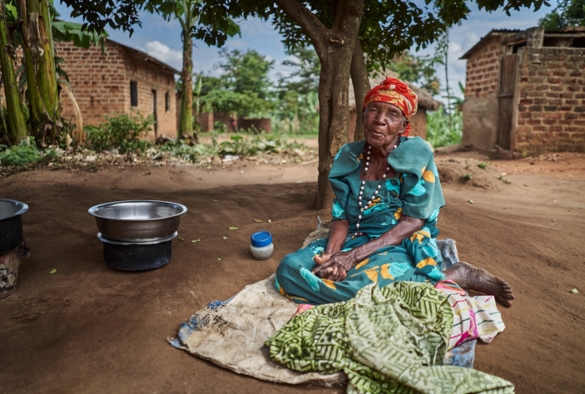
A new University of Liverpool study will explore the impact of Covid-19 related public health strategies on older people in Uganda.
According to the 2014 national census, older people (> 65 years) make up 4.2% of the total population (1.5 million) in Uganda with over 80% residing in the rural areas.
People living in low- and middle-income countries (LMIC) are likely to have different experiences of dealing with the coronavirus outbreak and resulting restrictions on their daily lives, than those in high-income countries. Older people are a particularly vulnerable population, who are facing long periods of self-isolation to avoid contracting the virus.
Funding provided by the University’s ODA Rapid Response Fund will allow Dr Clarissa Giebel, working with Dr Isaac Ddumba from the African Research Centre for Aging and Dementia, to explore the experiences of older people (aged 65 and above) living in Uganda to the Covid-19 related public health strategies. To date, there is no evidence on the effects of Covid-19 related public health strategies and changes to daily life in both the general population and in older adults, neither in high- nor in LMIC. This study will provide important insights into how Covid-19 related public health strategies, including self-isolation and service closures, affect older adults in different household circumstances.
Dr Clarissa Giebel, Research Fellow, from the University’s NIHR ARC NWC team said: “This project will allow us to understand how Covid-19 public health strategies have an impact on the lives of older people in a very different context to the UK. Strategies put in place are likely to have a significant impact on the lives of older people, and might impact their well-being. It is important to look at these impacts not only in high-income countries but also in low-income countries, where household make ups and the ability to socially distance might be different.”
As part of this fast-track study, researchers in Uganda at the ARCAD will be conducting up to 30 telephone interviews with older people within one-month time, and interviews will be audio-recorded and translated from Swahili into English after transcription.
Dr Isaac Ddumba from the African Research Centre for Aging and Dementia said: “This study will highlight the impact of public health strategies implemented by the Ministry of Health to the social, physiological and wellbeing of older people in Uganda. The findings will inform policy makers in contextualizing the implementation of strategies during periods of disease outbreaks. The University of Liverpool presented an opportunity to conduct studies in an area – dementia and ageing – that has hardly been focused on in sub-Saharan Africa.”
Findings could have significant implications globally, not just for Uganda, but for LMIC more generally, and will provide crucial first findings into this highly topical issue.
Alongside this research, the University of Liverpool is leading a new national COVID-19 study to explore the effects of social service closures on the lives of older people, people with dementia and unpaid carers in the UK.
An expert team of NHS, voluntary and academic collaborators have been brought together to try and understand the immediate and longer-term implications of these COVID-19 related closures on the people most affected.
This study is still seeking participants so for more information or take part, please visit the COVID-19 Dementia Study webpage.